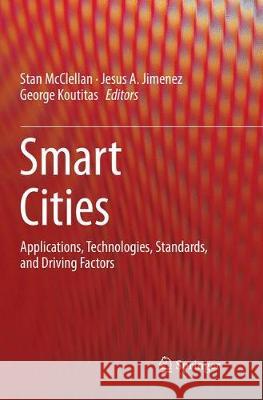Smart Cities: Applications, Technologies, Standards, and Driving Factors » książka
topmenu
Smart Cities: Applications, Technologies, Standards, and Driving Factors
ISBN-13: 9783319866123 / Angielski / Miękka / 2018 / 239 str.
Kategorie:
Kategorie BISAC:
Wydawca:
Springer
Język:
Angielski
ISBN-13:
9783319866123
Rok wydania:
2018
Wydanie:
Softcover Repri
Ilość stron:
239
Waga:
0.39 kg
Wymiary:
23.5 x 15.5
Oprawa:
Miękka
Wolumenów:
01











